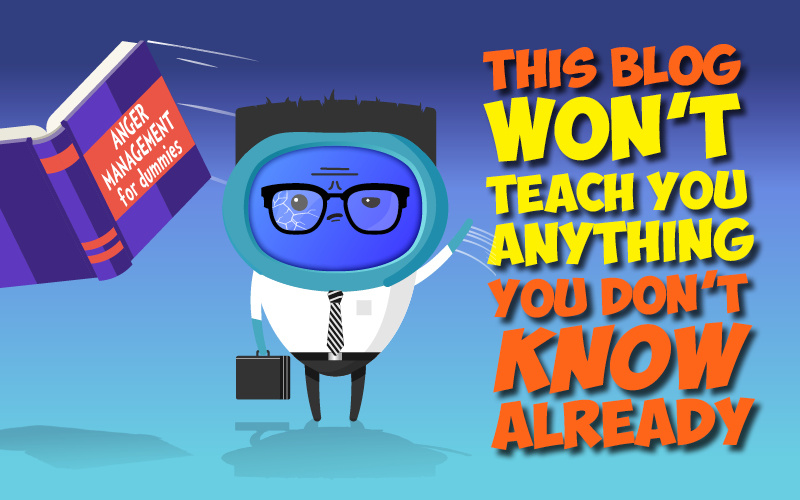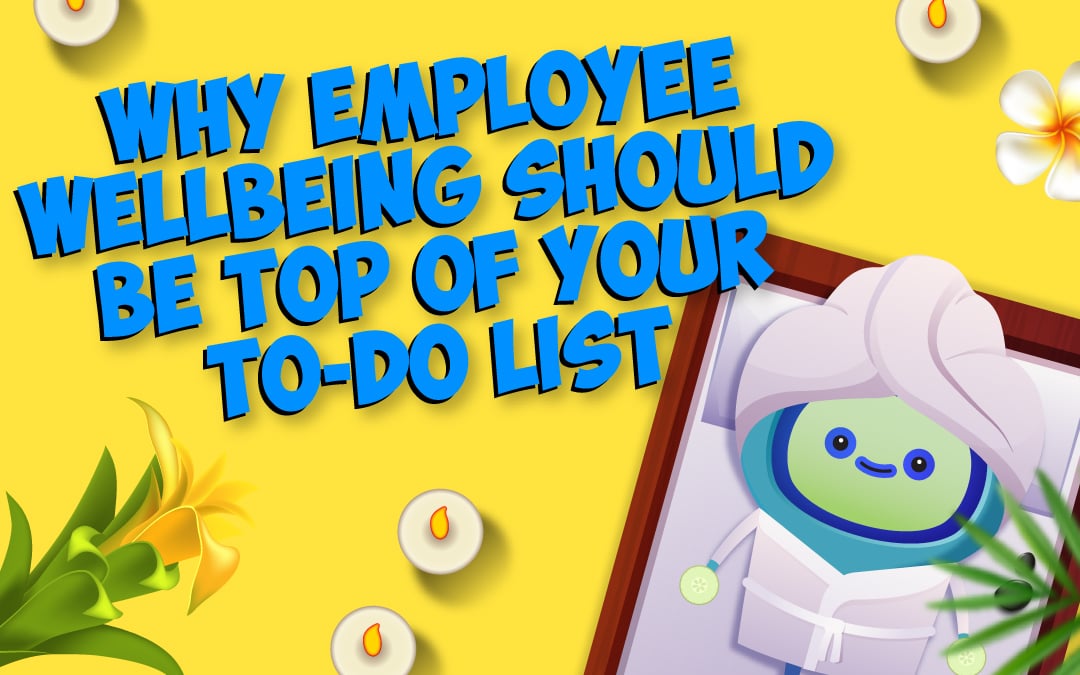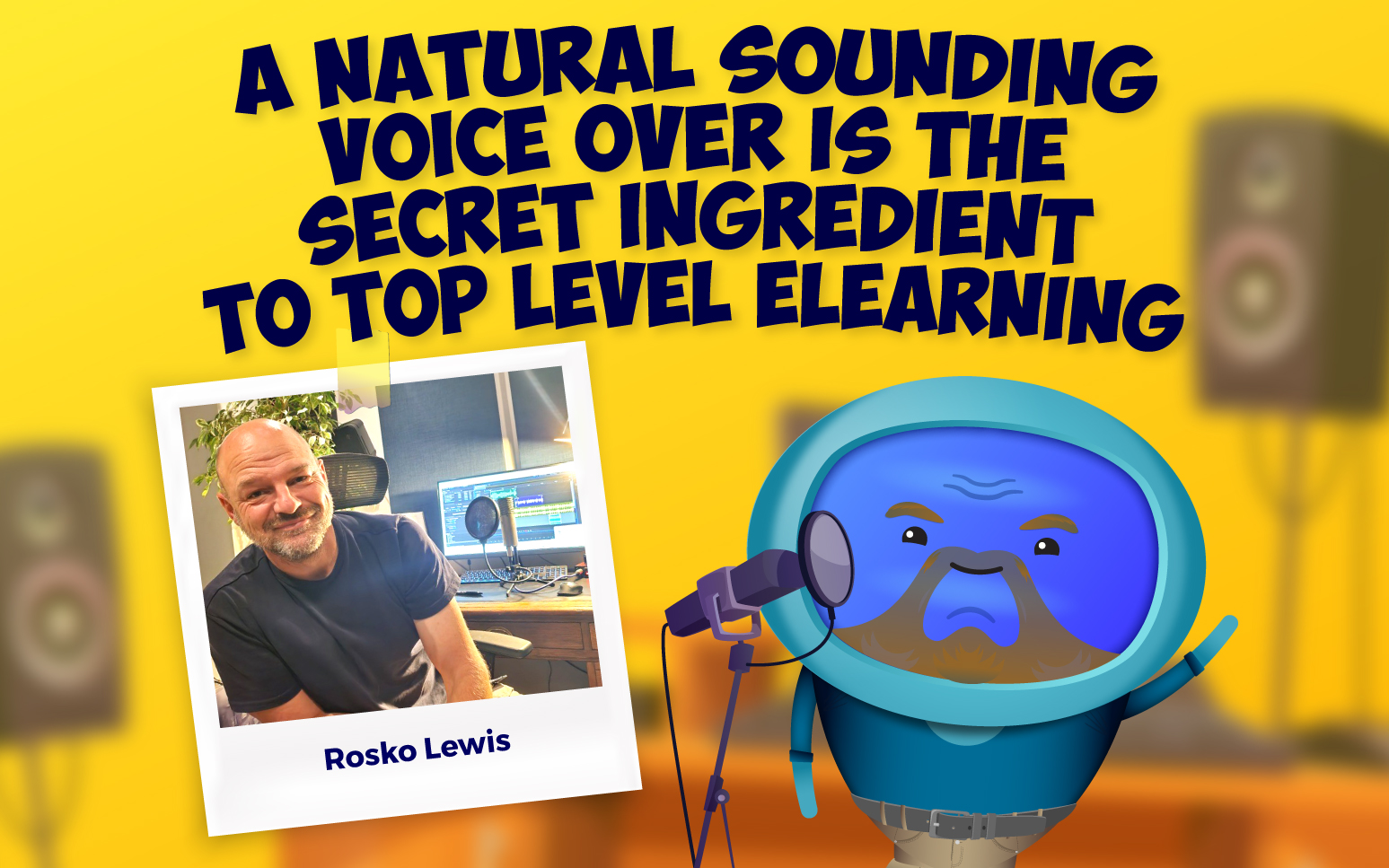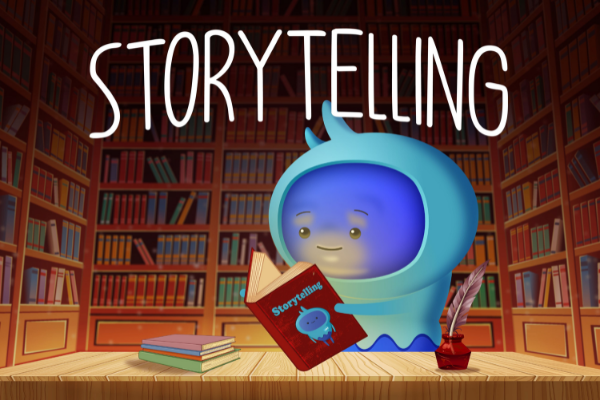“It’s just cartoons. Is this training only for children*?”
We get it. At first glance, you might see the little blue character in our trailer or on our socials, and get the wrong impression. But do you really like that boring training you periodically have to sit through? Hours in front of a computer and you come away knowing nothing new?
Of course not. You don’t even have to like us. Even if the rich, animated style might not be to your liking (for some reason), our courses contain something we know you’ll enjoy, because all humans do.
Storytelling. It’s ingrained into us.
Consider this; You can remember what happened when a tiger came to tea. You probably remember Spot the dog and his mum searching for him inside a clock. And you almost certainly remember what happens when you write to the zoo to ask for a pet.
You were probably tiny when you read these or had them read to you, but in your mind's eye, you can see the colours on the book covers, and dozens of others – ‘Meg and Mog,’ ‘That’s not my cat’, ‘Hairy Maclary from Donaldson’s Dairy’… But do you remember the front cover of your first exercise book at school? That should be just as iconic, no? And you probably stared at that book even more.
Why? Because we learn by storytelling. We always have done, passing on key information in the form of a story, well before people wrote things down. You can imagine ancient cultures, sitting round a fire while the elders told stories, each adding their own embellishment, a reflection of their personality. We too, learned and developed through stories as youngsters, they shape us. Why is it any different when we get older? Hint: It isn’t.
Here at iAM, we recognised this, so we made it a key pillar of our courses. They follow a character with a problem and their journey to the solution. Adding a character makes the course relatable, engaging, and memorable. But why is this such an effective method of learning retention? Let’s look at some of the reasons:
1. Stories make an emotional connection.
We’re wired this way. Stories evoke primal emotion. These emotions create a connection between the learner and the content. So, the stronger the connection with the eLearning narrative, the more likely we are to retain that information. Becoming emotionally engaged with the content stimulates the release of neurotransmitters, like Dopamine. Dopamine plays a key role in motivation, mood regulation, learning and memories – it influences behaviour by signalling when actions lead to rewards or positive outcomes.
2. Using Stories helps maintain high narrative relevance.
If your eLearning has stories in it, they will be more engaging (much more than dry facts). Narratives provide real-world context, and a narrative structure will help organise content logically. When learners are engaged, they understand key information more and retain information better. We make it fun and engaging by looping in references and tributes to popular culture. You’ll see older stuff like our take on Star Wars, James Bond and Indiana Jones. But you’ll also notice references to current popular shows like Stranger Things. And that draws learners in – it’s relevant.
3. Courses with storytelling are more visually stimulating.
We’re obviously more drawn to bright, colourful things than beige and grey, aren’t we? Our learning is vibrant, hand-drawn by skilled storyboard artists, and it really stands out. Then we make it move, with lovely, natural animation which we take our time over. It comes together to create this awesome visual learning to help learners understand complex concepts and improves learning outcomes. How? Well, it comes down to engagement again. You’re more likely to remember something with a mental image in your head of what that topic is. And our stories help to put that image there. You’ll remember Walter White teaching you about hazardous chemicals much more than some words on a screen, right?
I know what you’re thinking. We haven’t yet touched on whether we really think retaining knowledge is actually overrated? Of course not. So, let’s rephrase that a little. Does retaining knowledge stop us from learning new things, especially if our minds aren’t open to them?
That depends. Retaining knowledge is essential because you’re laying the foundation for further learning and smarter decision-making. If you didn’t have that base knowledge, you wouldn’t be able to do anything, never mind understand complex concepts. You wouldn’t even be able to read this blog because you hadn’t remembered the skill of reading.
On the other hand, some people do try and actively stop themselves from learning. Particularly people with a fixed mindset believe that they already possess all the information they will ever need. They think that they know the ‘truth’, and resist taking on new information in case it contradicts what they already believe is the truth. Does that sound like a good thing? No, it sounds like what it is – a stifling of intellectual growth.
Some people also think that our brains have a limited capacity. And that’s where the grey area comes in. By nature, it’s a limited capacity, but it’s more than you’ll ever need. The issue, really, is that most brains can’t handle vast amounts of detailed knowledge all at once. Over time, slowly building the foundations from the ground up is the best way (and indeed, that’s how our schooling system works – you don’t find out about differential equations before you can identify a triangle, after all). Knowing too much doesn’t prevent us from absorbing new ideas or better understanding complex concepts.
Interestingly, the idea that retaining knowledge can sometimes limit learning is supported by various educational and psychological theories. including Carol Dwecks’ research on fixed and growth mindsets. John Swellers’ concept of cognitive load theory explains that if too much effort is spent on retaining and recalling knowledge, this can lead to cognitive overload. That makes it harder to process and learn new material. Just like how having too many windows open on your laptop makes it run slower.
What we’re saying is that while retaining knowledge is crucial, it has the potential to hinder learning, too. But, as earlier, slow and steady wins the race. If the eLearning you take builds upon your fundamental knowledge and helps you retain it simply through the way the information is presented – storytelling – then this is a really useful thing to explore.
Storytelling isn’t just for children, and neither are our courses. It’s an effective way to engage learners of all ages, because it creates emotional connections, is relevant to modern culture and is pretty damn visually stimulating. In short, when people start watching them, they want to finish. And these things help those people remember what they have learned anyway.
Retaining knowledge isn’t overrated - it’s essential if you want to build upon foundations and learn new skills. Doing so helps you grow as an employee and as a person. But if you let retention of information limit learning, you’ll have a closed mind to new ideas.
*Nope. They’re animations, not cartoons, anyway. Every course has a different audience.
Looking to know more about Storytelling in eLearning?
If you're keen to know more about storytelling, why not check out our bite-sized eLearning content, covering everything from leadership and people management to health & safety and compliance? Download our free microlearning toolkit to support your business. Try iAM Learning for yourself - get started today!




